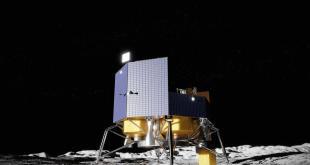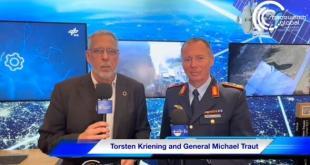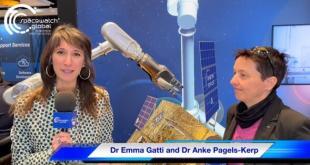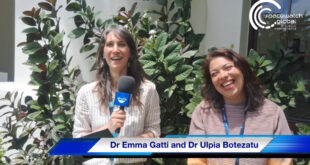By Luisa Low
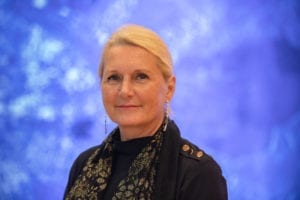
During this week’s live Space Café hosted in Bremen, Northern Germany, SpaceWatch.Global Publisher Torsten Kriening spoke with Professor Pascale Ehrenfreund, the President of both the International Space University and the International Astronautical Federation and Research Professor of Space Policy and International Affairs at George Washington University’s Space Policy Institute.
An academic by training and trade, Professor Ehrenfreund has had one of the best careers in the business, having held academic and research positions at NASA JPL, the German Aerospace Center (DLR) and Leiden University.
However, she’s not your everyday academic – she’s on the ground, meeting with people face-to-face and negotiating a new future for both the sector and institutions she leads.
This week, she and Torsten discuss the unique, driving force behind the International Space University and what lies ahead for the dynamic, one-of-a-kind institution.
Bringing space to the grassroots
Like many higher educational institutions worldwide, the COVID-19 pandemic has had a deep impact on the International Space University, which as its name would suggest, relies on an international cohort of students.
In spite of this, change is in the air. Thanks to Professor Ehrenfreund’s future-thinking vision, she is forwarding accreditation of the institution’s world famous Master of Space Studies program, maintaining a gender parity of almost 50 percent, increasing recruitment in regions like Asia and Oceania, as well as introducing policy and processes that foster a safer and more inclusive campus.
While the ISU’s 35-year legacy has been powered by its unique and interdisciplinary mix of students, ensuring this intercultural environment remains safe and inclusive for all is a challenge and one that Professor Ehrenfreund takes very seriously.
“We have to make sure that staff, students and young professionals are in a safe environment.”
“We have just created a new committee in order to look at the processes which we will introduce in all our programs – specific modules to really foster mutual respect and a safe environment for our students and staff.”
Creating a stellar workforce for the future
The rapidly developing space sector has required the ISU to constantly calibrate their offerings – but they are not just keeping up, they are maintaining their position as a market leader in international space education.
They are doing this by aligning with the commercial sector and embedding the learning of entrepreneurship in their degrees.
Many of their graduates have gone on to create companies – over 120 and counting worldwide. Many prospective students are joining the university’s programs as budding entrepreneurs – with a recent ISU poll showing that 70 percent of students want to learn about how to start a space company.
“We immediately integrated that into the ISU curriculum. We have no electives, but we have a space policy and entrepreneur lab and an incubator – so we have all the possibilities in order to foster entrepreneurship.”
“This industry in particular needs a well educated stellar workforce for the future.”
“I think this is a very, very important process in Europe. We still have to overcome this ‘risk aversion’ – we need to have many, many more young professionals starting companies, and bringing innovative solutions to the space sector.
“The International Space University has to be one of those organisations which helps to foster that in combination with many other organisations.”
To listen to Professor Pascale Ehrenfreund’s insights into space education, you can watch the full program here:
Luisa Low is a freelance journalist and media adviser from Sydney, Australia. She currently manages Media and Public Relations for the University of Sydney’s Faculty of Engineering.


